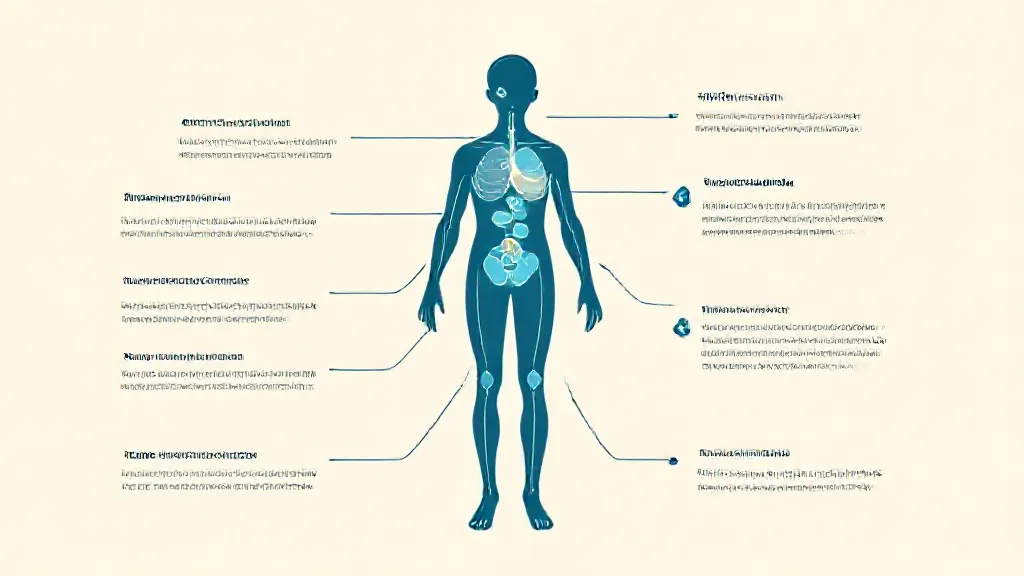Water is essential for life, making up about 60% of the human body. It plays a critical role in various bodily functions, including temperature regulation, nutrient transportation, and waste elimination. When the body does not receive enough water, dehydration occurs, leading to a cascade of negative health effects.
Understanding what happens when you don’t drink enough water is vital for maintaining overall health and well-being.
The Early Signs of Dehydration
The initial symptoms of dehydration can be subtle and easily overlooked. Common early signs include thirst, dry mouth, and fatigue.
As the body begins to lose more water than it takes in, these symptoms can escalate to headaches, dizziness, and decreased urine output. It is crucial to recognize these signs early, as they indicate that the body is beginning to be deprived of the hydration it needs to function optimally.
Impact on Physical Performance
Dehydration can significantly impair physical performance.
Studies have shown that even a 2% loss of body water can lead to a decline in physical performance, affecting strength, endurance, and overall athletic ability. This is particularly important for athletes and those engaging in strenuous activities. When dehydrated, the body struggles to regulate temperature, leading to increased fatigue and a higher risk of heat-related illnesses.
Cognitive and Mental Health Effects
The effects of dehydration extend beyond physical performance; they also impact cognitive function. Research indicates that mild dehydration can lead to difficulties in concentration, increased perception of task difficulty, and mood changes, such as irritability and anxiety. Maintaining adequate hydration is essential for optimal brain function, as even slight dehydration can hinder cognitive processes.
Long-term Health Risks
Chronic dehydration can lead to serious long-term health issues. Prolonged lack of water intake has been linked to kidney stones, urinary tract infections, and even kidney failure. The kidneys require sufficient water to filter waste effectively, and without it, toxins can accumulate in the body, leading to severe health complications.
Additionally, dehydration can contribute to chronic conditions such as hypertension and cardiovascular disease.
Skin and Aging Effects
Dehydration also affects skin health. The skin is the body's largest organ, and it requires adequate hydration to maintain elasticity and appearance.
When dehydrated, skin can become dry, flaky, and more prone to wrinkles. This is particularly concerning for those looking to maintain youthful skin, as chronic dehydration can accelerate the aging process and diminish overall skin health.
The Importance of Hydration in Various Life Stages
Different life stages require varying levels of hydration.
Children, pregnant women, and the elderly are particularly vulnerable to dehydration. Children are often less aware of their thirst, and their bodies are more susceptible to fluid loss. Pregnant women need additional fluids to support fetal development, while older adults may experience a diminished sense of thirst.
Understanding hydration needs at different life stages is crucial for preventing dehydration.
Hydration Strategies for Daily Life
To prevent dehydration, it is essential to adopt effective hydration strategies. Drinking water regularly throughout the day, consuming water-rich foods like fruits and vegetables, and monitoring urine color can help ensure adequate hydration.
Setting reminders to drink water and carrying a reusable water bottle can also promote better hydration habits.
Conclusion: Prioritizing Water Intake for Health
In conclusion, understanding what happens when you don’t drink enough water is vital for maintaining health. The consequences of dehydration can range from mild discomfort to severe health issues.
By prioritizing water intake and recognizing the signs of dehydration, individuals can take proactive steps to ensure they remain hydrated, ultimately supporting their overall health and well-being.
